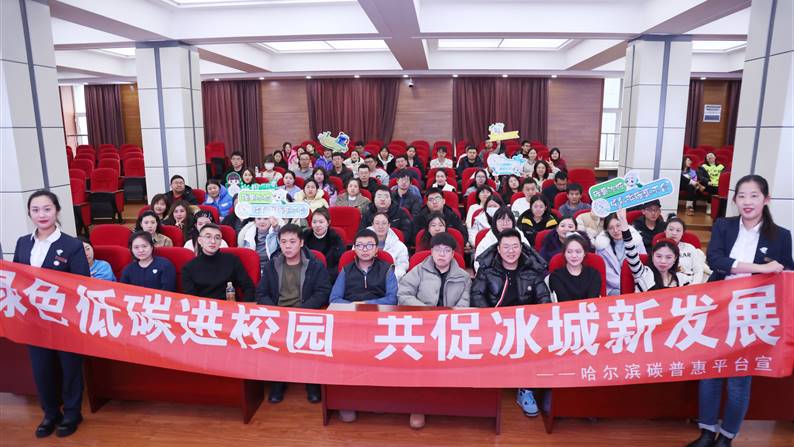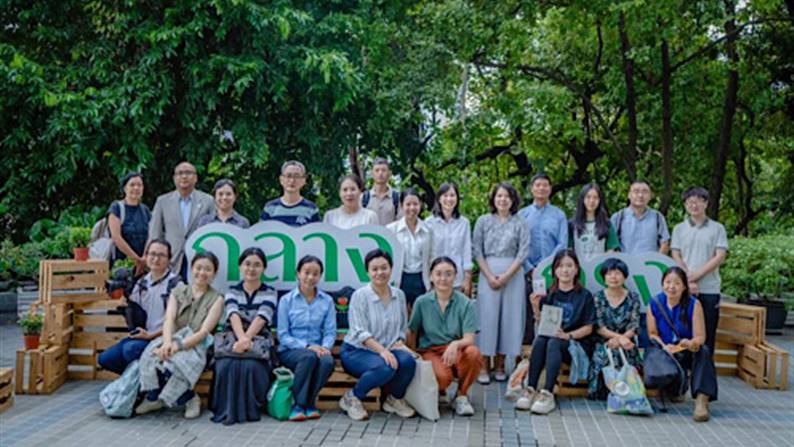

Recently, the Office of the Ministry of Industry and Information Technology (MIIT) released the list of typical blockchain applications for 2022, and JD Logistics' trusted supply chain logistics service platform was selected as a benchmark case of "blockchain + real economy".
JD Logistics has pioneered a supply chain operating model based on blockchain technology that enables logistics signatures to be returned electronically, reducing the cost of paper shipping orders, improving operational efficiency and enhancing consumer experience. This innovative approach simplifies the complex signature process, saves time, reduces paper usage, and significantly reduces carbon emissions from the logistics and express delivery industry.
JD Logistics' blockchain-based supply chain logistics certificate service platform solves the problem of traditional paper documents being signed and received late, lost, easily tampered with, and having high management costs.
Electronic signatures are generated through a certain cryptographic operation to replace handwritten signatures or seals, and are used to identify the signer's identity and recognize the contents of electronic data. On the other hand, blockchain storage uses blockchain and related distributed ledger technology to connect nodes of authoritative institutions such as courts, notaries, judicial appraisal centers, time stamping service agencies, audit agencies, and digital identity authentication centers to provide electronic data certification services and ensure the integrity and authenticity of certification information.
According to data from the State Post Bureau, China's express delivery business volume reached 110.58 billion packages in 2022, and at least 100 billion paper shipping orders are produced annually. By using paperless operation with JD Logistics' blockchain-based signature products, true "zero-carbon" electronic receipts will be achieved. China's logistics transportation greenhouse gas emissions account for 10% of the total national emissions, second only to the emissions of the construction industry. According to calculations based on the "Greenhouse Gas Calculation Method for Express Delivery Industry," JD Logistics estimates that using "zero-carbon" electronic receipts will reduce carbon emissions by more than 750,000 tons per year.
Blockchain technology has a distributed, decentralized, and tamper-proof storage and sharing mechanism, which makes data that uses electronic signature technology more secure and trustworthy. With the characteristics of real and unchangeable signatures guaranteed by blockchain technology, data reliability and fairness can be ensured.
Combining blockchain technology and electronic signature technology to achieve paperless operations is beneficial for reducing paper processes in logistics, improving operational efficiency, reducing operating costs, and protecting the environment. Furthermore, blockchain technology provides efficient data storage and sharing, improves information transparency and traceability, helps enterprises and consumers better supervise and manage the supply chain, promotes supply chain transparency and fairness, and helps build trust and increase brand value.
It is worth mentioning that as early as 2021, JD Logistics became the first logistics company in China to receive DCMM level 4 certification and won the "Best Data Governance Practice Award" from the Chinese branch of the International Data Management Association (DAMA).
By combining blockchain technology and electronic signature technology, JD Logistics can play an important role in different fields in the future, improving efficiency, reducing costs, and promoting innovation, and thus contributing to the digitalization and green and sustainable development of the logistics industry.
近日,工业和信息化部办公厅公布2022年区块链典型应用案例名单,京东物流可信供应链物流服务平台作为“区块链+实体经济”的标杆案例入选。
京东物流首创的基于区块链技术实现物流签单返还的供应链运营模式,不仅能够有效降低纸质运单成本,提升运营效率和消费者体验。将大规模、冗杂的签单过程简化,既节省时间又节约纸张,大量减少物流快递行业使用纸质单据带来的碳排放。
京东物流基于区块链的供应链物流单证服务平台,能够解决传统纸质单据签收不及时、易丢失、易篡改,管理成本高的问题。
其中,电子签名是通过某种密码运算生成唯一性的电子密码代替书写签名或盖章,用于鉴定签名人的身份以及对一项电子数据内容的认可。
而区块链存证则是采用区块链及相关分布式账本技术,联合法院、公证处、司法鉴定中心、授时服务机构、审计机构及数字身份认证中心等权威机构节点,并为其提供电子数据存证服务,保证存证信息的完整性和真实性。
国家邮政局数据显示,2022年中国快递业务量完成1105.8亿件,每年千亿的快递量至少会产生千亿张纸质单据,而使用链上签产品实现无纸化运营后,将真正实现“零碳”电子回单。我国物流运输温室气体排放量占全国总量的10%,仅次于建筑行业的排放量。京东物流根据《快递业温室气体测算方法》测算,使用“零碳”电子回单预计一年可减少超过75万吨碳排放量。区块链技术拥有分布式、去中心化、不可篡改的存储和共享机制,这使得使用电子签名技术的数据更加安全和可信。凭借区块链技术确保签名的真实和不可更改特点,保证数据的可靠与公平。结合区块链技术和电子签名技术实现无纸化操作,对于减少物流过程中的纸质流程、提高运营效率、降低运营成本、保护环境都十分有利。并且,区块链技术提供高效的数据存储和共享,提高信息透明度和可追溯性,有助于企业和消费者更好地监管和管理供应链,促进供应链的透明度和公平性,帮助建立信任和提高品牌价值。
值得一提的是,京东物流早在2021年就已成为国内首家获DCMM 4级认证的物流企业,并荣获国际数据管理协会(DAMA)中国分会评选的“数据治理最佳实践奖”。
京东物流结合区块链技术和电子签名技术,未来还可以在不同的领域中发挥重要作用,从而提高效率、降低成本和促进创新,助力物流行业数字化和绿色可持续发展。

打造绿色低碳街区,奏响幸福美好生活最强音
10-18 · 来源:湖北省武汉市江汉区北湖街道环保社区 · 作者:湖北省武汉市江汉区北湖街道环保社区

“碳惠冰城”:东北首个市级平台的“双碳”实践与冰城示范
10-15 · 来源:哈尔滨产权交易所有限责任公司 · 作者:哈尔滨产权交易所有限责任公司

亚洲气候治理新篇章:中国公益代表团参访曼谷气候周,探索跨区域合作新路径
10-10 · 来源:公益时报 · 作者:公益时报